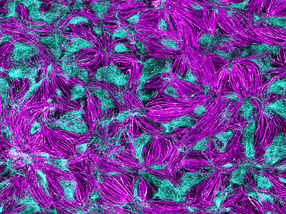Actelion reports results of exploratory study with macitentan in IPF patients
Actelion announced that the exploratory Phase II study with macitentan in patients with idiopathic pulmonary fibrosis (IPF) shows a promising safety and tolerability profile of macitentan, no difference being observed between placebo and macitentan with regard to liver enzyme elevations.
The double-blind, randomized, placebo controlled, multicenter study evaluated the efficacy and safety of the 10 milligram (mg) dose of macitentan or placebo in 178 patients with idiopathic pulmonary fibrosis. On average, patients were exposed to study drug for more than 14 months, with a maximum exposure of 24.6 months.
Jean-Paul Clozel, M.D. and Chief Executive Officer of Actelion commented: "I am very encouraged to observe that, in this patient population, macitentan displays an excellent safety and tolerability profile, particularly in terms of liver enzyme elevations that are no different from placebo."
Jean-Paul Clozel concluded: "The 10 mg dose of macitentan is the higher of two doses under evaluation in our ongoing Phase III SERAPHIN study in pulmonary arterial hypertension. I expect this event-driven morbidity / mortality study with over 740 patients to report in the first half of 2012."
The primary endpoint of the MUSIC study, forced vital capacity, was not met. The company will not initiate a Phase III IPF program. Actelion will analyze the study data in detail to understand certain observations in favor of macitentan such as reduced cough and fewer reported cases of pulmonary hypertension (PH). Following discussions with clinical experts in the field, Actelion will present full study data through scientific publications and decide on potential future exploratory efforts.
About the safety and tolerability profile of macitentan in this exploratory IPF study
The safety set comprised 178 patients (randomized 2:1), who received at least one dose of study treatment. Exposure to study treatment was similar in each group, with an average duration of 14.3 months in the macitentan group (n = 119) and 15.4 months in the placebo group (n = 59).
The dual endothelin receptor antagonist macitentan in this patient population was generally well tolerated. Most notably, there was no difference in liver enzyme elevations between macitentan and placebo. Elevations of liver alanine or aspartate aminotransferases greater than three times the upper limit of normal were observed in 4 macitentan-treated patients (3.4%) and 3 placebo recipients (5.1%).
As in other IPF studies with endothelin receptor antagonists, class-related adverse events more frequent on macitentan than placebo were those related to fluid retention (with only one patient discontinuing study treatment) and decrease in hemoglobin, with these changes judged to be not clinically relevant.
In contrast to the tolerability profile of other endothelin receptor antagonists in previous clinical studies, there were no relevant findings of headache, hypotension, nasopharyngitis, rhinitis and hot flush.
Most read news
Organizations
Other news from the department research and development

Get the life science industry in your inbox
From now on, don't miss a thing: Our newsletter for biotechnology, pharma and life sciences brings you up to date every Tuesday and Thursday. The latest industry news, product highlights and innovations - compact and easy to understand in your inbox. Researched by us so you don't have to.























































